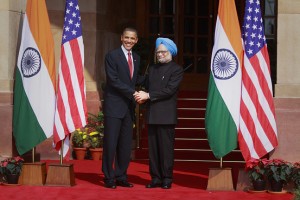ISIL Attacks in Ninewa Province
Press Statement
Department Spokesperson
The United States is actively monitoring the situation in the Sinjar and Tal Afar districts of Ninewa Province where the Islamic State of Iraq and the Levant (ISIL) has launched a series of offensives against civilian populations, including in the town of Sinjar. We are gravely concerned for the safety of civilians in these areas, including the vulnerable minority communities who for years have been targeted by ISIL and its progenitor, al-Qa’ida in Iraq (AQI). We deeply regret the displacement of innocent civilians and mourn the loss of life from recent fighting, including from the ranks of courageous Kurdish Peshmerga units who have been fighting to defend these areas.
The United States is supporting the Iraqi Security Forces and Peshmerga Forces working to defend these areas against ISIL. Our Joint Operations Centers in Erbil and in Baghdad are sharing information with ISF and Peshmerga commanders. Ambassador Beecroft has met this morning with the President of Iraq, Fuad Massum, and the Deputy UN Special Representative for Iraq, Gyorgy Busztin, to discuss a coordinated approach to the humanitarian situation. We urge all Iraqi authorities, civil society, and international partners to work with the United Nations to deliver lifesaving humanitarian assistance.
The ISIL assault over the past 48 hours on territories along the border of the Iraqi Kurdistan Region and focusing on towns and villages populated by vulnerable minorities, demonstrates once again that this terrorist organization is a dire threat to all Iraqis, the entire region, and the international community. We will continue to facilitate coordination between authorities in Baghdad and Erbil and provide direct assistance wherever possible. We further call on all Iraqi leaders to move swiftly pursuant to their constitutional timeline to form a new government that can help pull the country together and harness national resources against this common enemy.


